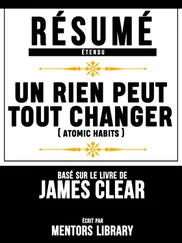Every Olympian wants to win a gold medal. Every candidate wants to get the job. And if successful and unsuccessful people share the same goals, then the goal cannot be what differentiates the winners from the losers. It wasn’t the goal of winning the Tour de France that propelled the British cyclists to the top of the sport. Presumably, they had wanted to win the race every year before—just like every other professional team. The goal had always been there. It was only when they implemented a system of continuous small improvements that they achieved a different outcome.
Problem #2: Achieving a goal is only a momentary change.
Imagine you have a messy room and you set a goal to clean it. If you summon the energy to tidy up, then you will have a clean room—for now. But if you maintain the same sloppy, pack-rat habits that led to a messy room in the first place, soon you’ll be looking at a new pile of clutter and hoping for another burst of motivation. You’re left chasing the same outcome because you never changed the system behind it. You treated a symptom without addressing the cause.
Achieving a goal only changes your life for the moment . That’s the counterintuitive thing about improvement. We think we need to change our results, but the results are not the problem. What we really need to change are the systems that cause those results. When you solve problems at the results level, you only solve them temporarily. In order to improve for good, you need to solve problems at the systems level. Fix the inputs and the outputs will fix themselves.
Problem #3: Goals restrict your happiness.
The implicit assumption behind any goal is this: “Once I reach my goal, then I’ll be happy.” The problem with a goals-first mentality is that you’re continually putting happiness off until the next milestone. I’ve slipped into this trap so many times I’ve lost count. For years, happiness was always something for my future self to enjoy. I promised myself that once I gained twenty pounds of muscle or after my business was featured in the New York Times , then I could finally relax.
Furthermore, goals create an “either-or” conflict: either you achieve your goal and are successful or you fail and you are a disappointment. You mentally box yourself into a narrow version of happiness. This is misguided. It is unlikely that your actual path through life will match the exact journey you had in mind when you set out. It makes no sense to restrict your satisfaction to one scenario when there are many paths to success.
A systems-first mentality provides the antidote. When you fall in love with the process rather than the product, you don’t have to wait to give yourself permission to be happy. You can be satisfied anytime your system is running. And a system can be successful in many different forms, not just the one you first envision.
Problem #4: Goals are at odds with long-term progress.
Finally, a goal-oriented mind-set can create a “yo-yo” effect. Many runners work hard for months, but as soon as they cross the finish line, they stop training. The race is no longer there to motivate them. When all of your hard work is focused on a particular goal, what is left to push you forward after you achieve it? This is why many people find themselves reverting to their old habits after accomplishing a goal.
The purpose of setting goals is to win the game. The purpose of building systems is to continue playing the game. True long-term thinking is goal-less thinking. It’s not about any single accomplishment. It is about the cycle of endless refinement and continuous improvement. Ultimately, it is your commitment to the process that will determine your progress .
A SYSTEM OF ATOMIC HABITS
If you’re having trouble changing your habits, the problem isn’t you. The problem is your system. Bad habits repeat themselves again and again not because you don’t want to change, but because you have the wrong system for change.
You do not rise to the level of your goals. You fall to the level of your systems.
Focusing on the overall system, rather than a single goal, is one of the core themes of this book. It is also one of the deeper meanings behind the word atomic . By now, you’ve probably realized that an atomic habit refers to a tiny change, a marginal gain, a 1 percent improvement. But atomic habits are not just any old habits, however small. They are little habits that are part of a larger system. Just as atoms are the building blocks of molecules, atomic habits are the building blocks of remarkable results.
Habits are like the atoms of our lives. Each one is a fundamental unit that contributes to your overall improvement. At first, these tiny routines seem insignificant, but soon they build on each other and fuel bigger wins that multiply to a degree that far outweighs the cost of their initial investment. They are both small and mighty. This is the meaning of the phrase atomic habits —a regular practice or routine that is not only small and easy to do, but also the source of incredible power; a component of the system of compound growth.
Chapter Summary
Habits are the compound interest of self-improvement. Getting 1 percent better every day counts for a lot in the long-run.
Habits are a double-edged sword. They can work for you or against you, which is why understanding the details is essential.
Small changes often appear to make no difference until you cross a critical threshold. The most powerful outcomes of any compounding process are delayed. You need to be patient.
An atomic habit is a little habit that is part of a larger system. Just as atoms are the building blocks of molecules, atomic habits are the building blocks of remarkable results.
If you want better results, then forget about setting goals. Focus on your system instead.
You do not rise to the level of your goals. You fall to the level of your systems.
2 How Your Habits Shape Your Identity (and Vice Versa)
WHY IS IT so easy to repeat bad habits and so hard to form good ones? Few things can have a more powerful impact on your life than improving your daily habits. And yet it is likely that this time next year you’ll be doing the same thing rather than something better.
It often feels difficult to keep good habits going for more than a few days, even with sincere effort and the occasional burst of motivation. Habits like exercise, meditation, journaling, and cooking are reasonable for a day or two and then become a hassle.
However, once your habits are established, they seem to stick around forever—especially the unwanted ones. Despite our best intentions, unhealthy habits like eating junk food, watching too much television, procrastinating, and smoking can feel impossible to break.
Changing our habits is challenging for two reasons: (1) we try to change the wrong thing and (2) we try to change our habits in the wrong way. In this chapter, I’ll address the first point. In the chapters that follow, I’ll answer the second.
Our first mistake is that we try to change the wrong thing. To understand what I mean, consider that there are three levels at which change can occur. You can imagine them like the layers of an onion.
THREE LAYERS OF BEHAVIOR CHANGE
FIGURE 3: There are three layers of behavior change: a change in your outcomes, a change in your processes, or a change in your identity.
The first layer is changing your outcomes.This level is concerned with changing your results: losing weight, publishing a book, winning a championship. Most of the goals you set are associated with this level of change.
The second layer is changing your process.This level is concerned with changing your habits and systems: implementing a new routine at the gym, decluttering your desk for better workflow, developing a meditation practice. Most of the habits you build are associated with this level.
Читать дальше




![Джеймс Клир - Атомные привычки [Как приобрести хорошие привычки и избавиться от плохих]](/books/403243/dzhejms-klir-atomnye-privychki-kak-priobresti-horosh-thumb.webp)



